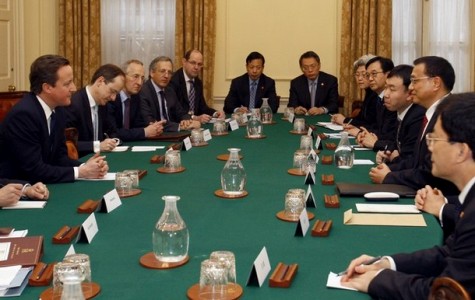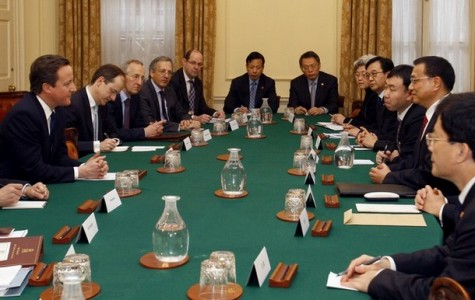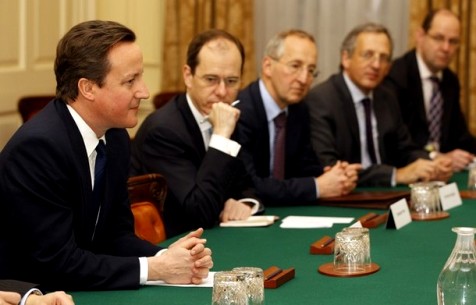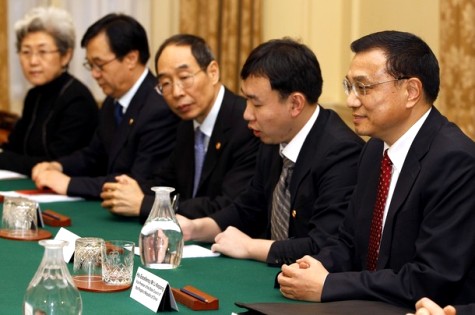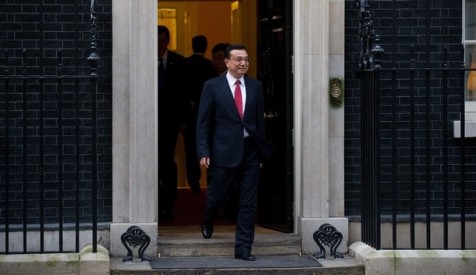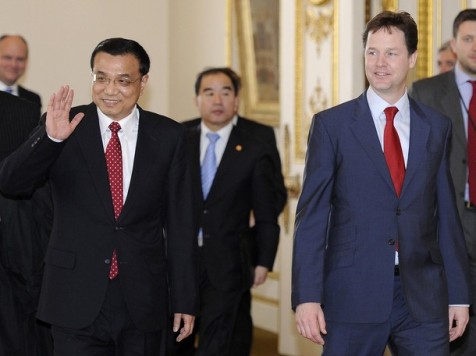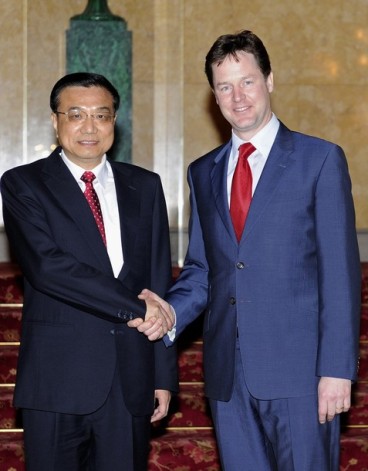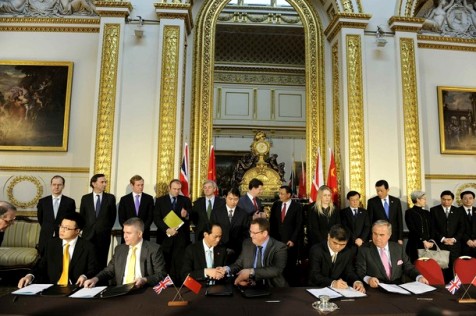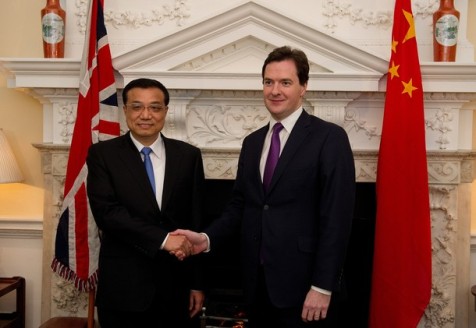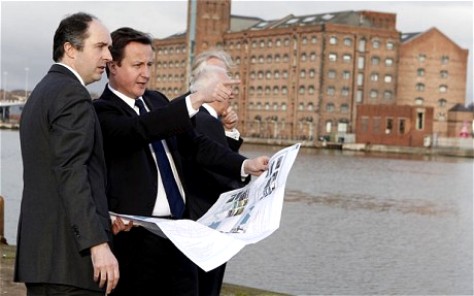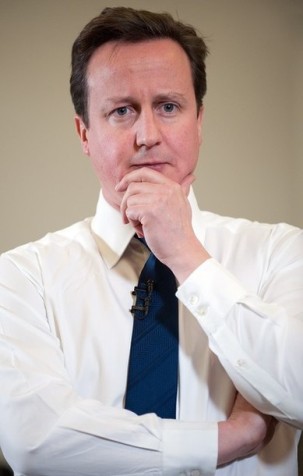
British Prime Minister David Cameron
Prime Minister David Cameron has delivered a speech in Manchester on 6 January 2011 on economic growth.
Read the speech :
January 06, 2011 (KATAKAMI / NUMBER10.GOV.UK) — It’s a new year – and this coalition has one over-riding resolution to help drive growth and create jobs right across our country.
Today I want to argue that there are three essential parts to our plan.
One: you’ve got to have proposals for restoring health to our public finances.
Two: you’ve got to have a strategy for growth.
And three: you’ve got to make sure that growth is balanced and spread more fairly across our country.
Let me take each of those in turn.
First, restoring health to our public finances.
Let us be clear.
If this coalition didn’t have a credible plan to cut the deficit and bring stability to our public finances, we wouldn’t be here today in Manchester talking about growth.
We’d be talking about rising bond yields and rocketing interest costs. The difficulties of servicing our debts. The danger of our credit rating being downgraded. Falling confidence in our economy.
We wouldn’t be looking at the danger zone that other European countries have fallen into; we’d be in that danger zone ourselves.
Still there are those who argue that tough fiscal action and a plan for growth are somehow alternative strategies.
I say that is incredibly misguided and it denies the evidence.
Because if you don’t have a plan to balance the books, you have no confidence.
And if you have no confidence, you have no growth.
It’s as simple as that.
It’s because we’ve taken tough action that Britain is out of the danger zone today and able to grow.
At the end of last year, the European Commission forecast that Britain would grow faster over the next two years than Germany, France, Japan and the United States.
That’s why despite all the calls to turn back, to delay, to take an easier option – we will stick to this course.
Of course government has got to pay down its debts in a way that helps growth rather than hinders it.
That’s why we’re making cuts to welfare but protecting science.
That’s why under real pressure to cut capital expenditure plans we’re giving the green light to massive infrastructure projects, so that in the coming years there’ll be more electrified rail – including here in the North West.
The Mersey Gateway is going ahead.
The Crossrail tracks are going down.
The superfast broadband cables are going to be laid.
And high speed rail is going to criss-cross the country.
And our pro-growth agenda is why – as difficult a decision as it was – we have raised VAT instead of national insurance.
Yes, a tax on what people spend is a tough thing to do and clearly it will have an impact, but not nearly as big an impact as a tax on jobs.
And to those who say we shouldn’t raise any taxes at all, I would argue that you have to strike a balance.
The international evidence is clear: with tax rises taking a quarter of the strain and spending cuts three quarters, we are striking the balance that is fair and good for growth.
None of this is easy.
But be in no doubt: balancing the books over this Parliament is absolutely essential to restoring confidence in our economy – and that is why we are sticking to this path.
The second thing you need is a strategy for growth that goes beyond just sorting out the mess of the public finances – and that’s exactly what this government has.
In the end it’s not us in Whitehall who will create growth, but you in your offices, your shops and your factories.
But you need some very basic things from us to help create wealth and jobs.
Yes, economic stability and low interest rates.
Yes, lower taxes and less red tape – which is why we’re cutting corporation tax to the lowest rate in the G7 and we’ve brought in a new one-in, one-out rule for regulation.
But government’s support for business cannot end there.
That’s laissez faire – and it is not what this coalition is about.
We’re about actively getting behind business.
What does that mean?
It means being clear about which are the high-growth industries and working strategically to strengthen them.
The pharmaceutical industry is already a big strength in our economic armoury – but we can’t be complacent about that.
So we’re introducing a Patent Box – offering a ten per cent tax rate on patent income – to encourage companies not just to experiment and innovate here but to invest here and employ people here to exploit those innovations.
And I have personally been on the phone to the heads of some of the biggest pharmaceutical companies, like Amgen and Pfizer, to encourage them to do just that.
The global green energy market – everything from wind turbines to home insulation to solar panels – is going to be worth trillions of pounds in the years to come.
I’m determined that the UK should have a big piece of that pie – and just look at what we’ve already done.
Supporting wave and tidal technologies.
Bringing in legislation for a Green Deal to get millions of homes insulated and create thousands of new jobs at the same time.
Putting £60 million into updating our ports so that wind turbines can be built here and manufacturers can be based here.
Tourism is another industry we’re getting behind.
The rewards for growth here are huge.
Just consider.
For every half a per cent increase in our share of the world tourism market we can add £2.7 billion pounds to our economy, and more than 50,000 jobs.
With a Royal Wedding, an Olympic games and a Diamond Jubilee around the corner, now is the time to go for it and increase that share.
Just yesterday I met with businesses who are helping to create a £100 million marketing campaign to roll out the welcome mat and say to the world – ‘come on over to Britain’.
Getting behind tourism, green energy, pharmaceuticals, advanced manufacturing, aerospace, the industries of the future – all this is crucial.
But it would be a big mistake if we stopped at those big ticket industries.
Because if you look at where growth has come from in recent years, you see that it’s the small, innovative companies that hold a lot of the potential.
Over and over again studies show that around one in twenty companies – the small, high-growth firms – are responsible for half of new job creation.
So far from ignoring the start-ups and the small players, we’re laying out the red carpet for them.
Creating a new Entrepreneur Visa for anyone with a great idea who wants to set up a business here.
Nurturing small clusters of innovative companies and web start-ups, as we are in a new Tech City – our own Silicon Valley – in East London.
And, as I announced yesterday, expanding the New Enterprise Allowance so that people who are unemployed can get the tools and capital they need to start their own business.
Our Growth Review – and the Chancellor’s budget – will look systematically at all those things that we need to help start ups and small business expansion.
From venture capital to bank lending.
From opening up government procurement to help firms expand, to cutting back the bureaucracy that can get in the way of their growth.
Being a pro-growth government means something else, too.
It means making sure the whole of the Whitehall machine – not just the Treasury and the Business Department – is geared up to boost enterprise.
That’s what our Growth Review is all about – making sure this is a mission that cuts right across government.
So I’m asking the Department for Local Government to reform planning laws so that it’s much easier to get wealth-creating projects off the ground.
I’m encouraging the Department for Energy and Climate Change to forge ahead with the world’s first carbon capture and storage demonstration plants and new nuclear power stations.
I’m working with the Foreign Office to link up our country to some of the fastest-growing parts of the world and personally leading massive trade missions to high growth countries.
We’re expanding trade promotion, strengthening old relationships and forging new ones.
Make no mistake – this government is doing everything we possibly can to drive growth and make the next decade the most dynamic and entrepreneurial in our history.
The third part of the plan – and it is crucial – is to make sure that growth is balanced right across our country.
For a long time we saw dangerous imbalances in our economy – tilted too far towards unsustainable spending and borrowing and away from private sector investment and exports.
But perhaps the most marked imbalance – the one felt most acutely by millions of people – was the imbalance between different parts of our country.
Over the past decade around half of economic growth was concentrated in London and surrounding regions.
If each of the regions had grown at the same rate as the country as a whole, the UK would be £38 billion better off.
Now that doesn’t mean looking at our economy as some kind of see-saw – pull one sector or one part of the country down on one side and the rest of our economy automatically rises up on the other.
Yes, the banks need to recognise their responsibility to our economy as a whole by lending properly to good businesses again.
But in the end you can’t sustainably rebalance our economy by making banking weaker or the City of London smaller.
You do it by making other regions and industries stronger.
So how do we do that?
Do you sit in Whitehall looking at a map of Britain, deciding where to plonk some big bureaucracies, despatching officials to pick winners, fund pet projects and roll out grand top-down initiatives?
Recent history tells us no – you can’t impose regional growth from above.
You’ve got to give local people real power to drive it.
In the next few years people all over our country – North, South, East, West – are going to see real change in the way local economies work.
Powerful mayors in our biggest cities – mayors with clout and passion to make change happen.
A new network of Technology and Innovation Centres, bringing together the best minds from our universities and the sharpest brains in business to get good ideas into the market.
New Local Enterprise Partnerships – coalitions of business, councils and communities like the one I saw in the Wirral this morning, where already leaders like Terry Leahy are working to get big projects off the ground.
This is a step change in the way regional growth is driven.
And part of that step change is why we’re here today – the Regional Growth Fund.
We’re saying to people – if you’ve got an idea to bring investment and wealth to your area, whether it’s a local wasteland that needs decontaminating before it can be built on or a run-down dockside that could be transformed into a retail area with a bit of start-up capital.
£1.4 billion is there waiting in the Regional Growth Fund to help make those good ideas happen.
So this is what you’ll get from us.
A plan that brings sense and stability to our public finances.
A plan that actively drives growth and gets behind enterprise.
A plan that helps to rebalance our economy, empowering local communities to take charge and drive wealth creation.
There are no short-cuts to economic recovery, and I don’t promise that the road ahead will be an easy one.
But if the people of this country pull together, if central government, local government, business and communities work together, then I am confident that we can have strong growth, we can build a more prosperous and more fair economy.
And we can have a brighter future for everyone in this country to look forward to. (*)




